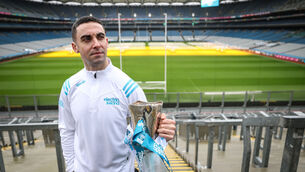Mike Quirke: GAA’s silent majority let down once again by Congress

In the interest of conceptual clarity — sometimes lacking at Congress — I will endeavour to start at the beginning…
And the beginning of our association, in every sense, has always been about the club. It’s where you start and where you finish. We grow up being fed a staple diet of clichés and advertising slogans, that tell us club people are the lifeblood of the association. They are the grassroots. The first and most powerful unit of the GAA. Flick through any relevant GAA document and you’ll find that club players make up about 98% of our association’s playing population. That’s the equivalent of enough seats for a dictatorship in the Dáil, never mind a majority. No coalition required.











